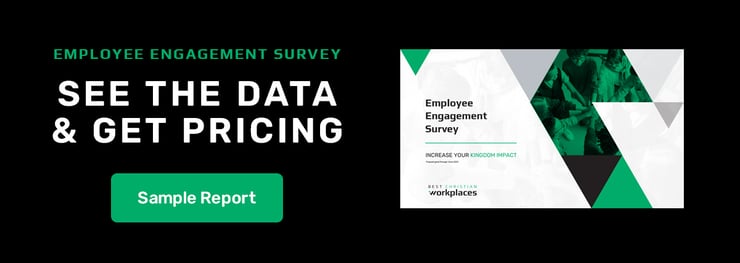Why Good Supervisors are Key in Building a Remote Work Culture That Works
Why Good Supervisors are Key in Building a Remote Work Culture that Works Remote work arrangements are nothing new and prior to 2020 and the COVID-19...

Writing in Forbes magazine, New York Times bestselling author Mark Murphy, nails why the perfect time to assess (survey) your employees is now:
"Lately, when I tell executives that this pandemic is a great time to assess their company’s employee engagement, many look at me incredulously, like I’ve got three heads. But the smartest executives simply nod in agreement.
Why? The smartest executives know that employee engagement surveys are not beauty contests or superficial exercises to solicit high scores to parade around town. The primary purpose of measuring employee engagement is to discover the truth about what’s helping or hurting your employees’ engagement in order to do more or less of those things."
Three emerging, new workplace realities suggest why the time is ripe for using engagement surveys to improve employee engagement.
Remote workers can naturally feel disjointed. The absence of actual face-to-face conversations with colleagues, team leaders, and direct reports means feedback loops are not as strong. Yet, people still want to speak, be listened to, and understood. This includes “the quiet ones,” as introverts make up 30-50 percent of the current workforce.
A confidential survey that invites anonymous open-ended feedback can be an envelope that contains remarkable honesty and breakthrough insights that might otherwise never be heard. Surveying is a perfect way to “unmute” every employee who has something important to say.
Reduced staffing is one of the most widespread, unforgiving casualties of the COVID-19 crisis. Fewer people are now doing more and different jobs. This person was originally hired to that thing. But not anymore. And that’s just one. Adaptive workplaces are not merely fluid; they can be rising rivers of unease, as employees with new tasks start to wonder, “What’s my role here?... How am I doing?... What does my manager really think?”
Surely, leaders themselves are not immune from asking such questions. Interestingly, leadership participation is equally representative of all employee groups in the ministry organizations, churches, and Christian-led companies involved with the Best Christian Workplace Institute. As one executive of a workforce in flux put it, “In this crowded hour of uncertainty, an online assessment might be the logical tool to set in motion the kind of healthy conversation we need to have with each employee we value.”
Whatever the workplace changes that are taking place, the need for trust stays the same. As one of the key drivers of employee engagement, trust is built on the compassion and concern a leader expresses to the people he or she stewards. It starts with the simplest, unassuming, question: “How are you doing?” It’s how leaders of great integrity care and serve and aspire to achieve results.
Caring, servant leadership and a desired measurable outcome come together in a story Jesus told:
“Suppose one of you had a hundred sheep and lost one. Wouldn’t you leave the ninety-nine in the wilderness and go after the lost one until you found it? When found, you can be sure you would put it across your shoulders, rejoicing, and when you got home call in your friends and neighbors, saying, ‘Celebrate with me! I’ve found my lost sheep!’” (Luke 15:4-6, the Message).
Such a shepherd knew what it meant to “shepherd the flock of God that is among you, exercising oversight, not under compulsion, but willingly, as God would have you” (1 Peter 5:2). He must have surveyed the flock, took notice and then acted.
Awareness. Need. Effort. Outcome.
As Mark Murphy concludes, “If we really care about helping our employees feel more passion and inspiration for their jobs and company, we need to assess them when they’re stressed. And fragile. And anxious. Not only would that give me the most truthful data, but it would also provide me with the greatest opportunity to do some good and help my employees. And isn’t that really the point of employee engagement?”


Why Good Supervisors are Key in Building a Remote Work Culture that Works Remote work arrangements are nothing new and prior to 2020 and the COVID-19...

Understand and Leverage Healthy Communication Skills in the Workplace At Best Christian Workplaces Institute, we have identified Healthy...

Hesitation about the cost of surveying is one of the most frequent concerns I hear from our Ministry Partners. This is a reasonable concern; you’ve...